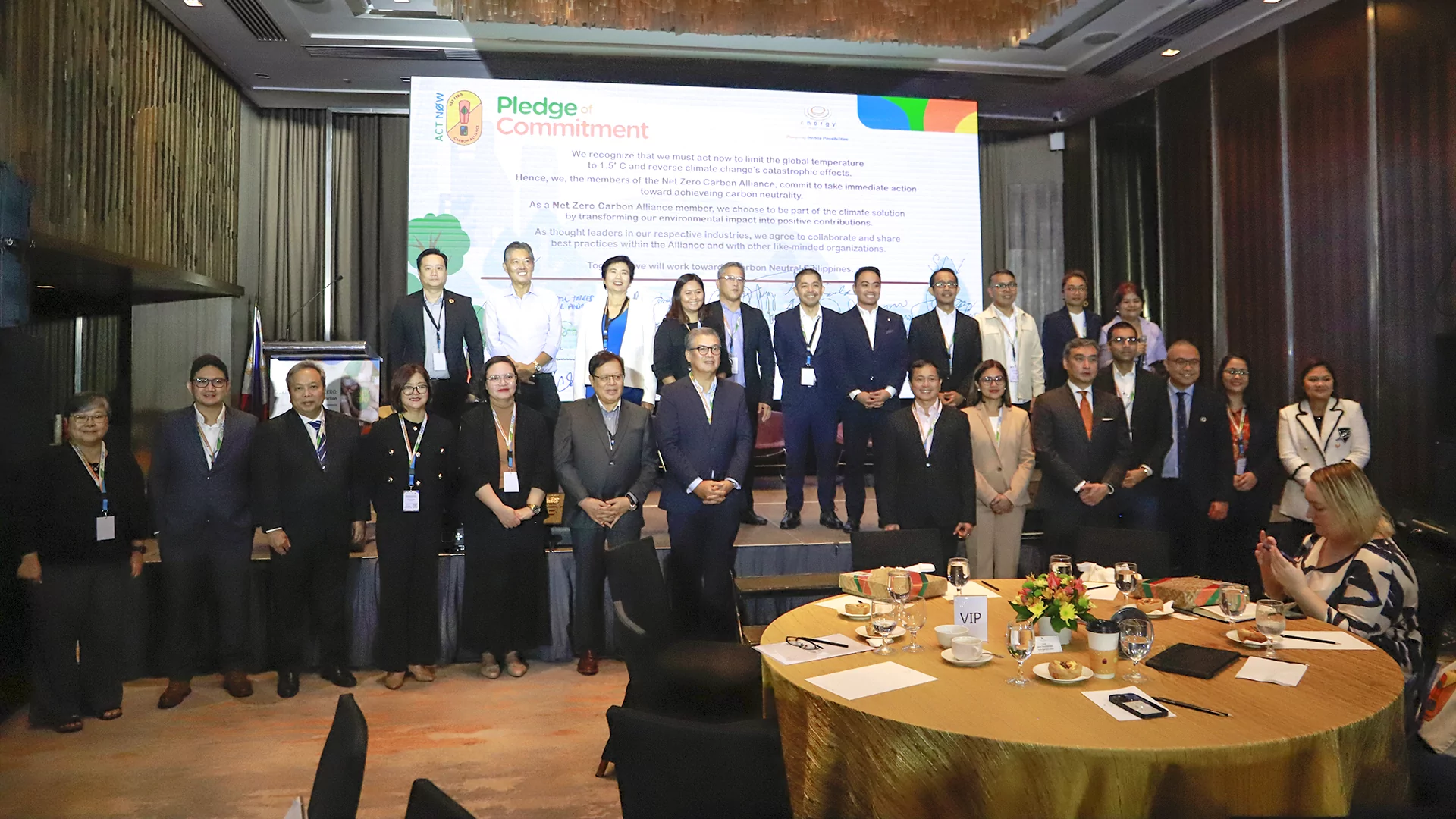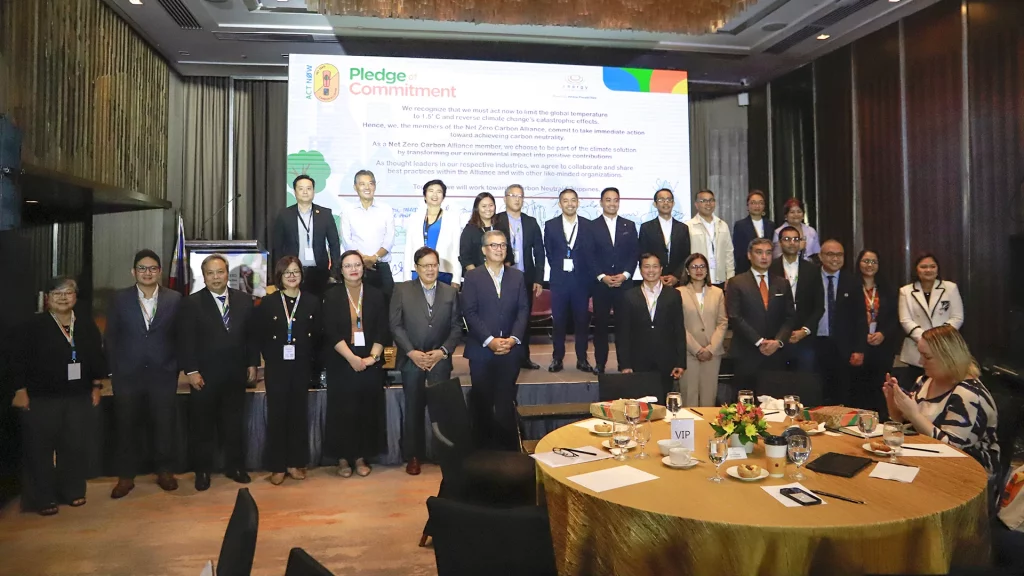
SU supports private sector strategies to lessen carbon emissions

Prof. Jane Annette L. Belarmino (top row, 3rd from the left), SU vice president for Development, Enterprise and External Affairs, represented SU at the Net Zero Carbon Alliance conference last September 25, 2023 in Marco Polo Ortigas Manila. (Photo from the EDC website)
Silliman University (SU), the only educational institution that is part of the Net Zero Carbon Alliance (NZCA), supported the network in a conference to promote strategies for the private sector to lessen carbon emissions and avoid contributing to the climate crisis.
SU attended the NZCA conference titled “Zeroing in on Net-Zero: From Corporate Pledges to Action” last September 25, 2023 at Marco Polo Ortigas Manila, which aimed to promote strategies for the private sector to lessen carbon emissions.
Prof. Jane Annette L. Belarmino, SU vice president for Development, Enterprise, and External Affairs, represented the University at the conference.
The conference gathered international and local experts on climate and sustainability to discuss challenges, opportunities, and solutions and share knowledge and insights for businesses to explore how they can begin and sustain their net zero journey.
Net zero refers to the balance between the amount of carbon going into the atmosphere and the amount that is removed from it and is achievable if carbon emissions are lessened.
NZCA organized the conference in celebration of its second anniversary.
NZCA is a network spearheaded by EDC that seeks to invite private Filipino companies and businesses to join the movement and work together to achieve carbon neutrality by 2050.
According to the EDC website, the NZCA is the first private sector-led initiative that has created a framework to attain carbon neutrality as a transition to achieving net zero for the Philippine business sector.
Members of the NZCA, such as SU, come up with a roadmap to achieve carbon neutrality by sharing best practices, scaling up carbon emission reduction and tracking, and providing better access to green financing, among many other capacity-building tools.
Last July, the NZCA held its third-quarter assembly in the SU campus.
In SU, existing initiatives to reduce its carbon emissions include the use of solar panels and renewable energy.
SU prevented an equivalent of 974.5 tonnes of carbon dioxide from going into the atmosphere by using renewable energy in a span of one year. This data was computed by First Gen Energy Solutions, Inc. based on SU’s usage from December 26, 2020 to December 25, 2021 and was submitted to SU through a certificate recognizing the University for contributing to First Gen’s mission of a “decarbonized and regenerative future.”
SU is completely powered by renewable energy through its power supply contract with the Energy Development Corporation (EDC), the country’s largest renewable energy producer by way of its core geothermal operations, owned by First Gen. It is the only university in Negros Island and one of the few in the country to be 100% powered by renewable energy.
When SU renewed its contract with EDC in 2022, Belarmino said the University was also able to generate savings by using renewable energy.


